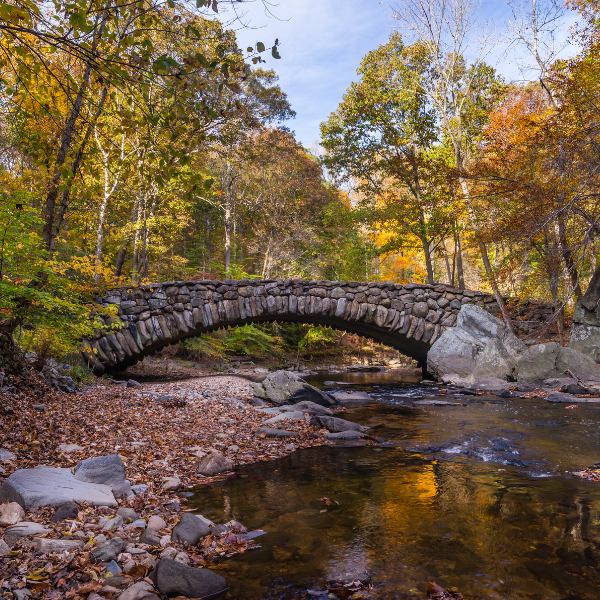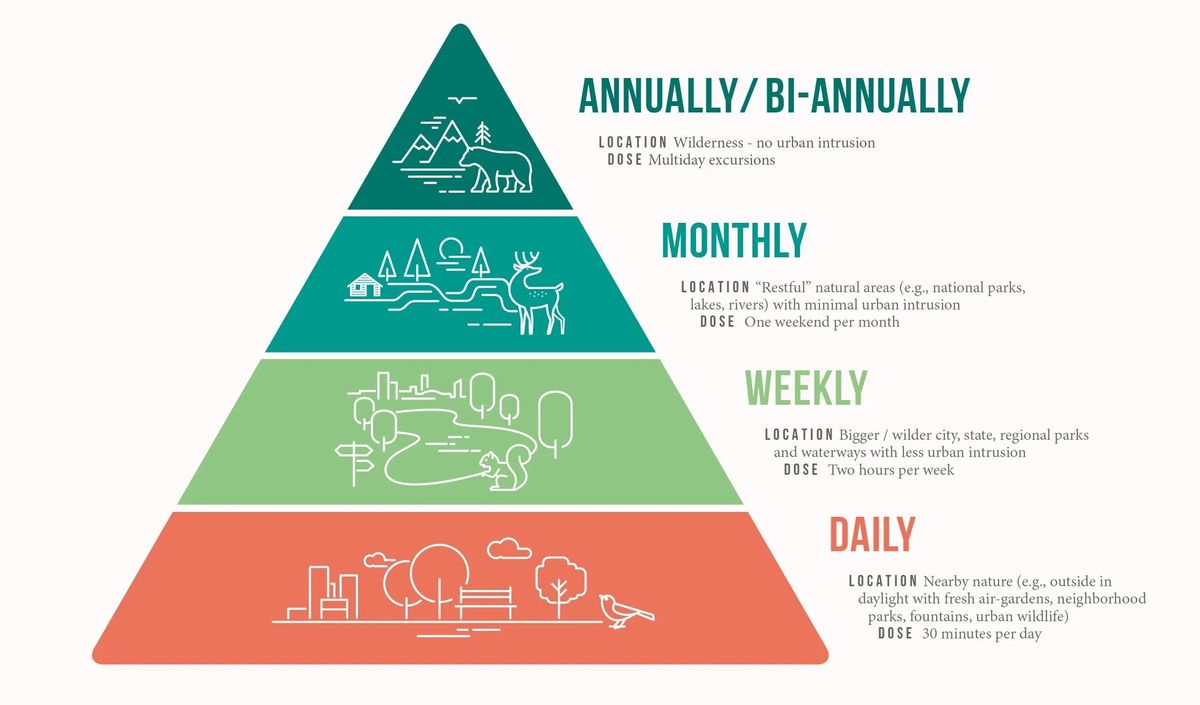
How Nature Nurtures Moms and Babies
Jessica Magidson, PhD
Nature-based self-care and therapy: how we can support moms and babies
My oldest daughter was born January 14th , 2020 – exactly two months prior to the world shutting down for the COVID-19 pandemic. My experience of early motherhood turned out to be mostly in the woods—I spent my maternity leave wandering the trails in Rock Creek Park. What I thought would last 12 weeks, we all now know lasted much longer. By the time my daughter could walk, I knew how and where all of trails connected, the most serene and beautiful spots, and endless options for hiking loops. I have always loved nature and the outdoors, but through these experiences I came to rely on it in ways I had not previously. For me, becoming a mom was synonymous with the challenges of COVID, yet at the same time, restoration in nature.
I may have been alone with my newborn for a lot of the time due to the pandemic, but little did I know at the time (even as a clinical psychologist!) how much being forced outdoors was good for both of us. Extensive research shows that spending time in nature—whether it’s parks, mountains, lakes or urban green spaces—can significantly improve our mental health and wellbeing, including reducing symptoms of anxiety, and depression. Nature exposure has also been shown to improve sleep and improve a sense of community and connection, both of which not surprisingly also improve our mental health.
Postpartum exposure to nature can play a valuable role in supporting the mental health of new moms and early development of our babies. Nature can be a buffer by reducing cortisol and stress, which let’s face it, is unavoidable during the demanding postpartum period. Increased physical activity, social interaction, and the restorative effects of nature can also promote opportunities for bonding with our babies. For newborns, being outdoors in safe, natural settings can contribute to sensory and emotional development, as well as parental bonding. Integrating nature into daily postpartum routines can offer an accessible, restorative way to support not only our mental health and well-being but also promote early childhood development.
Humans spend about 90% of our lives indoors despite the incredible health benefits of nature.
We do not need to backpack for a week to feel the benefits—even about two hours per week, or 20-30 minutes per day—of nearby nature, whether it’s outside in daylight near a garden or neighborhood park, can start to make an impact on our mood. University of Virginia’s Biophilic Cities Project
Researchers at the University of Virginia (Beatley, 2012) have been trying to understand how much of a “dose” of nature we need for a healthy adult life and to promote healthy child development—even developing a “nature pyramid” to help guide us.

The challenges of COVID and other turmoil we have experienced in the past five+ years does not mix well with the hormonal challenges of pregnancy and postpartum. We know that women in the postpartum period are at high risk for depression and anxiety, affecting as many as 1 in 6 new moms. Now is a time more than ever that we all need to reap the benefits of the natural world around us—and figuring out ways that it can be accessible to all in our community and that we all feel safe in doing so. I believe combining treatments that we know work for postpartum depression and anxiety, and other mental health conditions, in nature can further enhance their effects—both for mom and baby.
I am a clinical psychologist trained in cognitive behavioral therapy and mindfulness-based approaches. I work specifically with an approach called behavioral activation, which supports people to get back in touch with aspects of their lives that bring joy and meaning that they may have lost touch with. We explore what is important to you, your values, and how we can start building in activities in our day that can help us reach those feelings of joy and accomplishment. Anyone who has had a newborn or been in the home of someone with a newborn can quickly see how the early postpartum period completely turns our days and schedules upside down. Although we lose control of most aspects of our time and schedules, we can begin to rebuild and find points to reconnect with what is meaningful to us.
I believe that integrating nature exposure with these types of approaches – cognitive behavioral therapy, mindfulness, behavioral activation – can help us even more. Led by the Center for Nature Informed Therapy, there is a movement to shift therapy outside. I believe this can be a tremendous resource for new mothers – let’s give ourselves and our babies the benefit of not only evidence-based care for our mental health, but also nature and the outdoors.
For anyone interested in nature-based cognitive behavioral therapy and mindfulness approaches for moms, check out our newly launched practice Creekside Cognitive Behavioral Therapy Collective or reach out to Dr. Magidson for more information at CreeksideCBTCollective@gmail.com.
Jessica Magidson, PhD
Clinical Psychologist and Associate Professor in Psychology at the University of Maryland; Founder, Creekside Cognitive Behavioral Therapy Collective Practice; Mom of three (5, 3, and almost 1) and a Stroller Strides alumnae.
